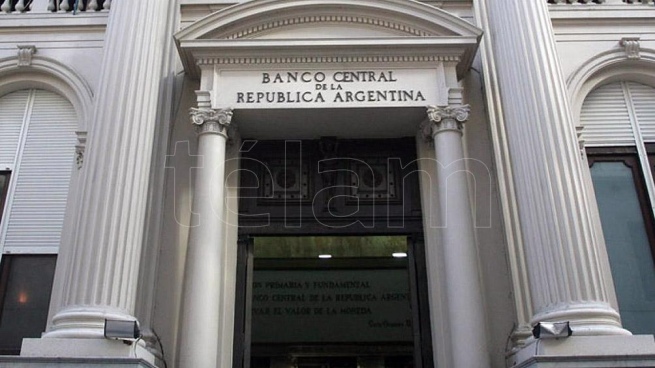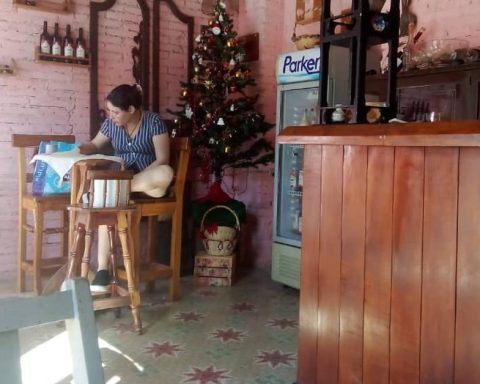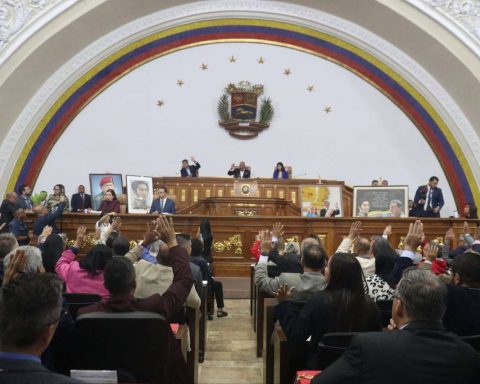The Directory of Central Bank of the Argentine Republic (BCRA) ordered this Wednesday to raise 250 basic points the annual nominal interest rate of the Liquidity Letters (Leliq) at 28 days, from 44.5% to 47%, which represents an Annual Effective Rate of 58.7%.
The Central Bank, in a statement, specified that in the case of deposits of up to 10 million pesos made by human beings, the new floor will be 46% per year for 30-day deposits, which represents a yield of 57, 1% Annual Effective Rate (TEA).
For the rest of the fixed-term deposits of the private sector, the guaranteed minimum rate will be 44%with a Annual Effective Rate of 54.1%.
“Active interest rates remain at levels compatible with the promotion of investment and production, and the development of the Mipyme sector. Additionally, the BCRA will continue to regulate the conditions of access to credit for family consumption,” the monetary entity said in a statement.
Regarding inflation in March, which closed with an increase of 6.7%, the Central Bank pointed out that the acceleration registered with respect to previous months “It is largely the result of an international shock that especially affected food and energy prices, caused by the war in Ukraineto which was added the concentration of increases in prices of regulated goods and services (petrol, electricity and gas, education and prepaid, among others) and seasonal increases (especially clothing)”.
The BCRA today increased the interest rate #Monetary politics in response to the commodity shock.
It ordered to raise by 250 basic points the annual nominal interest rate of the Liquidity Letters #Leliq at 28 days, going from 44.5% to 47% ▶️ https://t.co/Cla4XGQ6pV— BCRA (@BancoCentral_AR) April 13, 2022
“Given the transitory nature of this external supply shock, the BCRA expects inflation to begin to slow down gradually from April and May. In this sense, the high-frequency indicators monitored by the Central Bank have already begun to account for a slowdown in prices so far this month,” added the monetary agency.
They also assured that “the BCRA, in coordination with the National Government, will use all its tools to help moderate the second-round effects of the commodity shock on inflation”.
“The determination of the appropriate increases in the interest rate in the face of a negative supply shock requires a different calibration than that derived from a demand shock, since the objective is not to moderate the demand pressure, but to cut the effects of second round of the initial price increase, preserve monetary and exchange stability and protect the savings in pesos of Argentines, avoiding incentives that accelerate dollarization,” they emphasized.
They stated that “the rise in rates is a necessary condition but, by itself, not sufficient to reduce inflation” and listed “the other policies and conditions that will contribute to this joint task.”
Those “policies and conditions” are “the consolidation of exchange rate stability through a process of accumulation of international reserves” and “a downward exchange rate gap in the so-called financial dollars, reflecting the perception that the fundamental determinants of the macroeconomy”.
Added to this is “a level of the multilateral real exchange rate that is adequate to preserve the current account surplus of the balance of payments in the coming years” and “a profile of external maturities compatible with the external balance and the growth of the economy , after the various refinancing operations carried out”.
Other “policies and conditions” are “the reduction of the fiscal deficit, which will require less monetary financing”, the monitoring of “monetary aggregates that have returned to historical levels after the peak observed during the pandemic” and “a downward trajectory of the stock of remunerated liabilities of the BCRA (Leliq and Repos) in terms of GDP, as a consequence of the lower primary issuance —and therefore, lower sterilization needs—, the gradual convergence towards fiscal balance and a greater demand for money due to consolidation of a sustained growth process.
They also cited the need for “instruments that allow cushioning the effects of the shock of international pricespartially isolating the dynamics of local prices from international ones, such as the recently constituted public trust for wheat”, together with “price and salary agreements that seek to protect the real income of the population, while avoiding inflationary amplification of the recent external shock through the coordination of expectations”.
Finally, the Central Bank said that the rise in the interest rate “is consistent” with an evolution of the remunerated liabilities of the BCRA that would end in 2022 at levels that, measured in terms of GDP, will be below those of the closing of 2021.


















